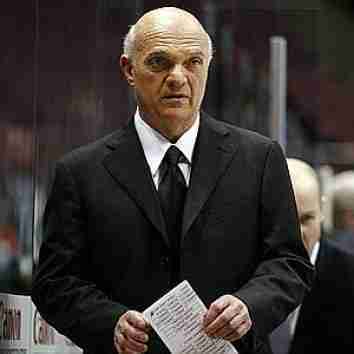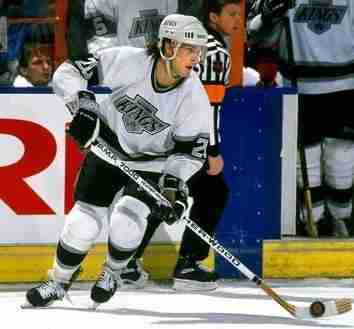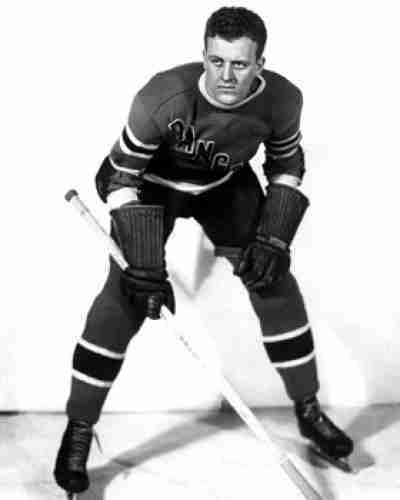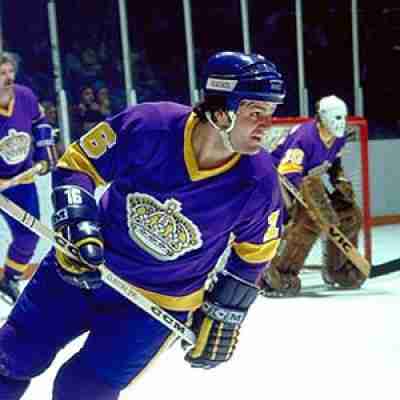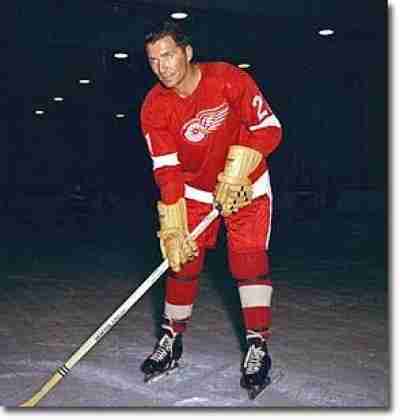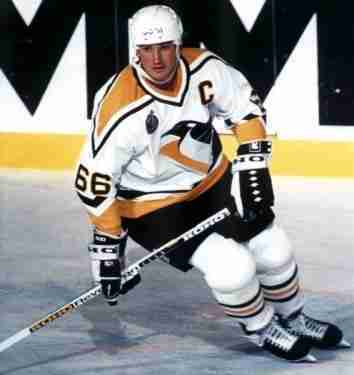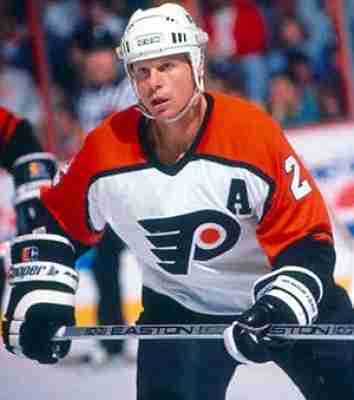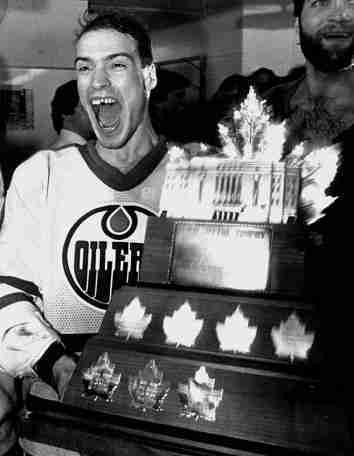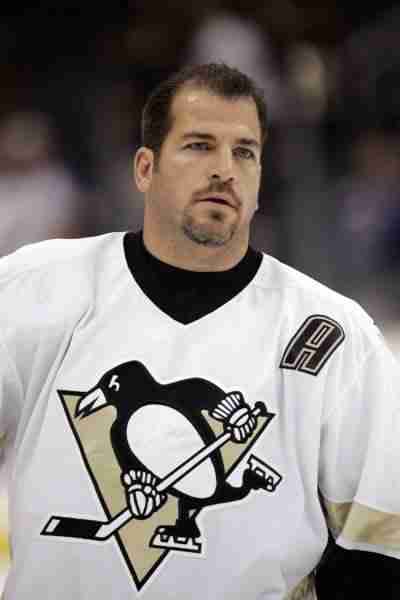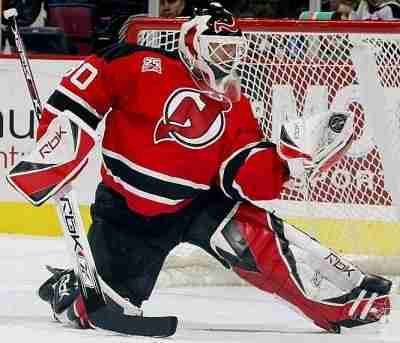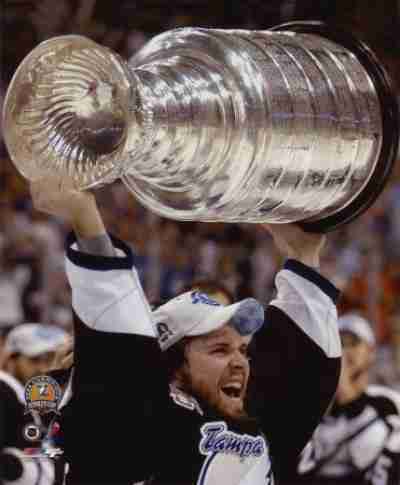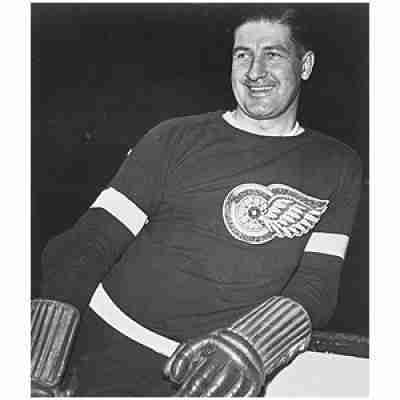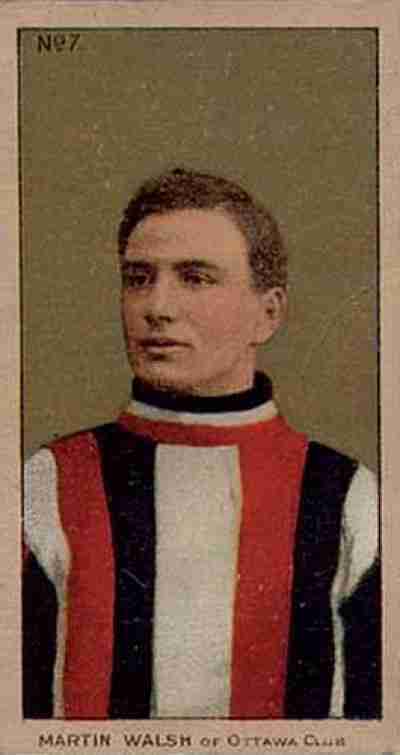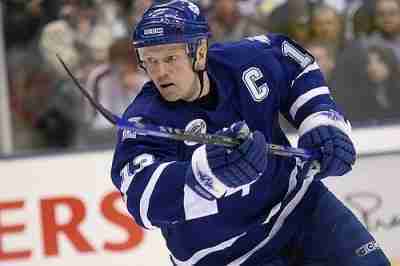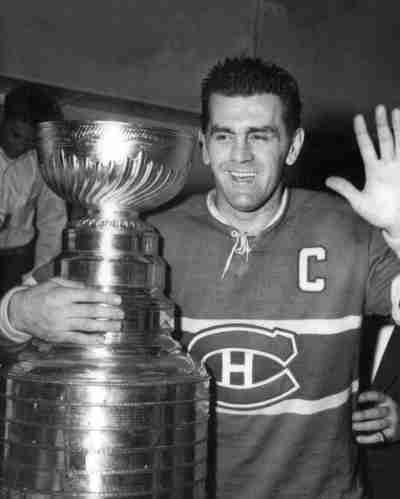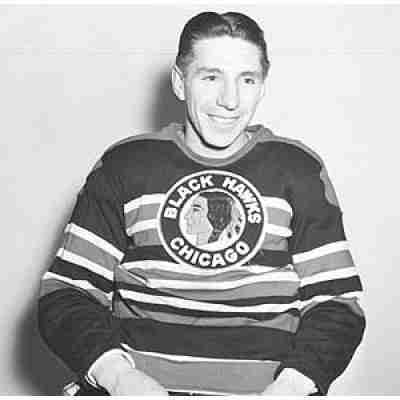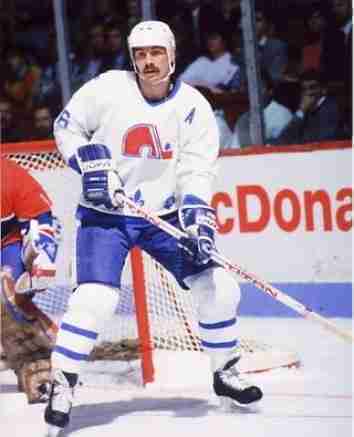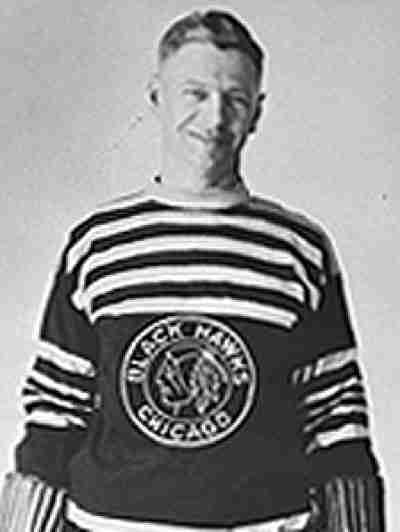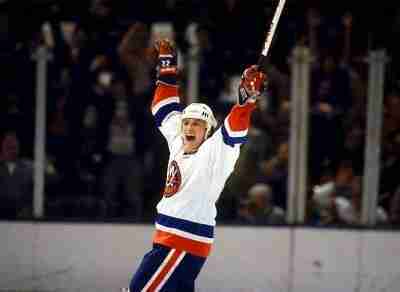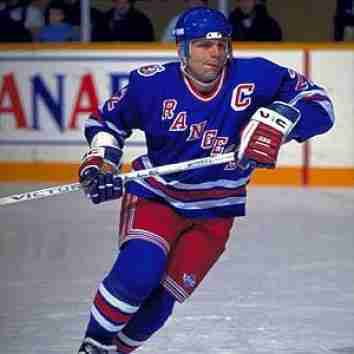Think about this for a second. Before Lou Lamiorello took over as the General Manager of the New Jersey Devils, the franchise (which was in Kansas City and Colorado before) had never had a winning record. That changed in Lou’s first year in 1987, and the building of a winner continued. The Devils not only won games, but they won three Stanley Cup Championships, primarily because of the shrewd business acumen of Lou. He would become the CEO and President of the club, a post he held when he was inducted to the Hockey Hall of Fame. Internationally, he was the General Manager of team U.S.A. and built the World Cup winner in 1996. The odds that the Devils would have ever held hockey’s Holy Grail without Lou Lamiorello is remote.
Luc Robitaille spent nineteen seasons in the NHL and won a Stanley Cup as a member of the Detroit Red Wings in 2002, but it was his tenure in Los Angeles years before where he had his greatest success. For a six year stretch, Robitaille was considered the games top Left Wing, and he would hit the 100 point mark four times as a member of the Kings. In L.A., he was part of a powerful offense that became more potent with the arrival of the Wayne Gretzky. Robitaille would finish with 668 goals in his career and would finish in the top ten in that category in nine seasons. Considering that Luc Robitaille played alongside some of the greats of the game, he was never really in a shadow which was a great testament to his ability and popularity. It was no surprise that he was selected to the Hockey Hall of Fame in his first year of eligibility.
We are not sure that a man named the only the 27th Greatest New York Ranger of All time is a Hall of Famer. It is not that we do not respect the accomplishments of Lynn Patrick, as he was a solid part of the Rangers 1940 Stanley Cup win, and as the son of Hockey Hall of Fame great, Lester Patrick, he was seemingly made for the game.
Marcel Dionne may very well be the greatest NHL player to never have won a Stanley Cup. Actually, he never really came close, as he was never really on great teams. Because of this, Dionne may not have achieved the level of popularity he should have, but his peers knew what skill that the offensively gifted Centre had as he won the Ted Lindsay Award twice; the award given to the MVP as voted by his peers. Dionne also won the Lady Byng twice and was a post season All Star four times. Eight times he would top the 100 point mark, and won the Art Ross in 1980. As good as he was, we can only imagine how much greater his legacy would be had he ever came close to a Cup.
Marcel Pronovost was an excellent stay at home Defenceman who was a big part of the Detroit Red Wings multiple Stanley Cup wins in the early 50’s. He was known throughout the league for his rough style of play, delivering devastating hits to offensive attackers, and taking his own share of punishment for the benefit of the team. Pronovost would become a regular participant to the All Star Game (he played in 11) and for a four year stretch he was named to the post season All Star team. Later in his career, he was traded to Toronto and was part of what looked like an all “senior” line up that won the Cup for the Buds in 1967. He would remain in hockey becoming a scout (and a very good one) for the New Jersey Devils and be part of three Stanley Cups; long after he was inducted into the Hall of Fame in 1978.
There is so much that can be said about Mario Lemieux, that a fewparagraphs just don’t seem to cut it. Putting it simply, Mario Lemieux is one of the greatest scorers in the history of hockey who seemed to have infinite ways to fool goaltenders. As such, he was one of the most exciting players in the league and challenged Wayne Gretzky as the top player in the game. It can be argued (and we will) that Mario’s presence in Pittsburgh saved that franchise from relocation in the 80’s.
A top forward in the WHA, Mark Howe (along with his father, Gordie) took the Houston Aeros to a pair of Avco Cup wins in the 1970’s. As he moved to New England, and later joined the NHL with the Whalers, Mark Howe emerged as one of the game’s top defenseman, who was a power play anchor and gifted two way player. It took him a lot longer to get into the Hockey Hall of Fame, as he was not only in his father’s shadow, but his WHA accomplishments were seemingly overlooked by the Hall. Thankfully, he took his rightful place alongside Gordie in 2011.
Wayne Gretzky may have been the offensive star of the Edmonton Oilers dynasty, but for many it was Mark Messier who was the fan favorite of the team. He was easy to like as he still had offensive firepower that fans love and the defensive prowess that traditionalists respect. He could check, he was a leader, and was a proven winner. The best example of this is that it was Mark Messier who led the Oilers to the Stanley Cup AFTER Wayne Gretzky was traded to Los Angeles. That was in 1990, a special year for Messier as he also won his first of two Hart Trophies (the second was in 1992).
A twenty two year veteran of the National Hockey League, Mark Recchi was one of the more productive players of the 1990’s, hitting the three digit figure in points three times. The gifted playmaker was also a three time Stanley Cup Champion, winning each ring with three different squads. As he is among the top twenty in every major offensive category in his career, it is difficult to imagine that he will be ignored by the Hall of Fame, but with all due respect to Mark Recchi, he does not exactly scream first ballot Hall of Fame entry. This one should be interesting.
Martin Brodeur is going to enter the Hockey Hall of Fame on his first try.
There should be no doubt about this, nor will there be any relevant debate on this subject.
There should be no doubt about this, nor will there be any relevant debate on this subject.
Considering that he was undersized and undrafted, the fact that Martin St. Louis had a career in the NHL was a surprise. Considering that he became a superstar was an absolute shock.
A consistent points producer, Marty Barry was one of the more durable players of his era. Barry only missed two games in a ten year span and often found himself in the top ten in scoring. Barry found himself in Motown and was a big part of consecutive Detroit Red Wings Stanley Cup championship in 1936 and 1937.
One of the few stars of the early Ottawa Senators, not to be born in Ottawa (he was from Kingston) Marty Walsh was a very good goal scorer for the team from the Capital City. Walsh may not have gotten as much attention as some of his teammates, but he was certainly a productive player on those championship teams.
The first ever European born number one NHL Draft Pick did not disappoint in the professional ranks. The Swedish born superstar would become one of the greatest hockey players that his country ever produced, and he would become a hero in Sweden and a star in Toronto, the Mecca of the hockey world. Sadly, Mats Sundin was often the lone bright spot for another wise bad team, and he never really came close to winning the Stanley Cup; though he did win the Olympic Gold Medal late in his career in 2006. The two time Second Team All Star finished with a very good 1,349 career points in roughly the same amount (1,346) of games and despite his quiet demeanor was considered one of the great leaders of all time.
The crown jewel of the 1961 Hockey Hall of Fame Class, Maurice “Rocket” Richard had the three year wait for HOF eligibility waived so that he could be enshrined right after he retired. Nobody should dispute that decision as the career of Richard was that important not just to Hockey but to the province of Quebec as well.
The youngest of the Bentley brothers, Max Bentley may have been the most fun to watch. He was one of the best skaters and stickhandlers of his era, and he would often make opponents look foolish with his “dipsy doodle” like play. Bentley would twice win the NHL scoring title twice while a member of the Chicago Blackhawks and won the Hart Trophy in 1943. Chicago however was not a great team, but he would get traded to the Toronto Maple Leafs and was in a position to provide another a unique skill set to an already loaded team. The fans took to him quickly as he did with the city of Toronto. He would go on to win three Stanley Cups with the Maple Leafs.
One of the top Left Wingers of the 1980’s, Michel Goulet brought excitement and hope to the hockey fans of Quebec City. It was not inaccurate to paint Goulet as a natural sniper, as for seven consecutive seasons he was able to net 40 goals and is a member of the elite group that has over 500 for his career. Goulet was capable on the defensive end, as he showed primarily in his veteran years late in his career with Chicago, but fans of the Left Winger will always remember how he was a star with Quebec putting the puck in the net on a regular basis.
Although he did have four seasons in the NHL (culminating in a Stanley Cup win with Boston in his final season), Mickey MacKay made his biggest dent in the PCHL where he was a solid goal scorer and helped the Vancouver Millionaires win the Stanley Cup in 1915. After starring out west for years he wound down his career in the NHL, and though he was not nearly as productive, he was still good enough to help the Bruins win a Cup in 1929.
As the goal scoring machine for the New York Islanders dynasty, Mike Bossy won the Calder Trophy in 1978 and spent the next nine seasons lighting the red lamp on a frequent basis. Bossy would become the second player to net fifty goals in fifty games and would hit the half-century mark in his first nine NHL seasons. More importantly, Bossy would lead his Islanders to four consecutive Stanley Cups.
Mike Gartner is not be the most decorated player, as he holds the distinction of being the only player to enter the Hockey Hall of Fame in his first year of eligibility without ever playing in a Stanley Cup Final, won a post season award or being named to an All Star team. That statement aside, Mike Gartner’s Hall of Fame induction is based on his longevity and consistency over his near twenty years of pro hockey. He would hit the 40 goal mark nine times and would finish with 708 in total. He was known for his speed on the ice and his accuracy with the puck. Gartner’s misfortune of being on a lot of bad teams (mostly in Washington) allowed him to suit up for Canada often in the World Championship, where he excelled. Often, the Hockey Hall of Fame is criticized for allowing a lot of players who may have been stat accumulators, but Gartner did pile up a lot of them!


